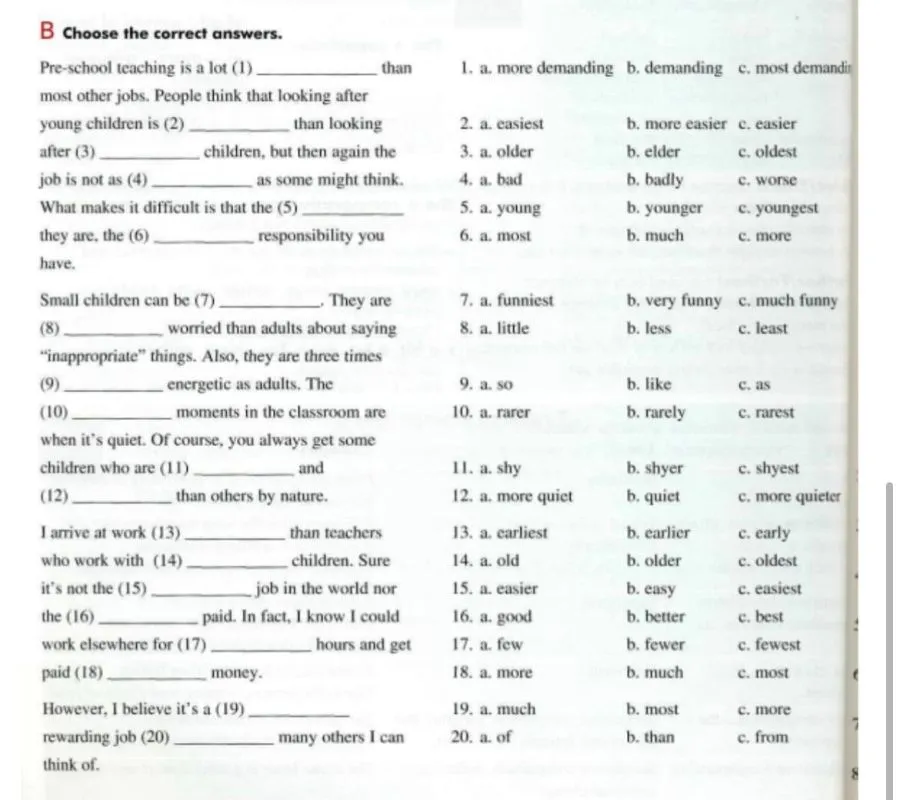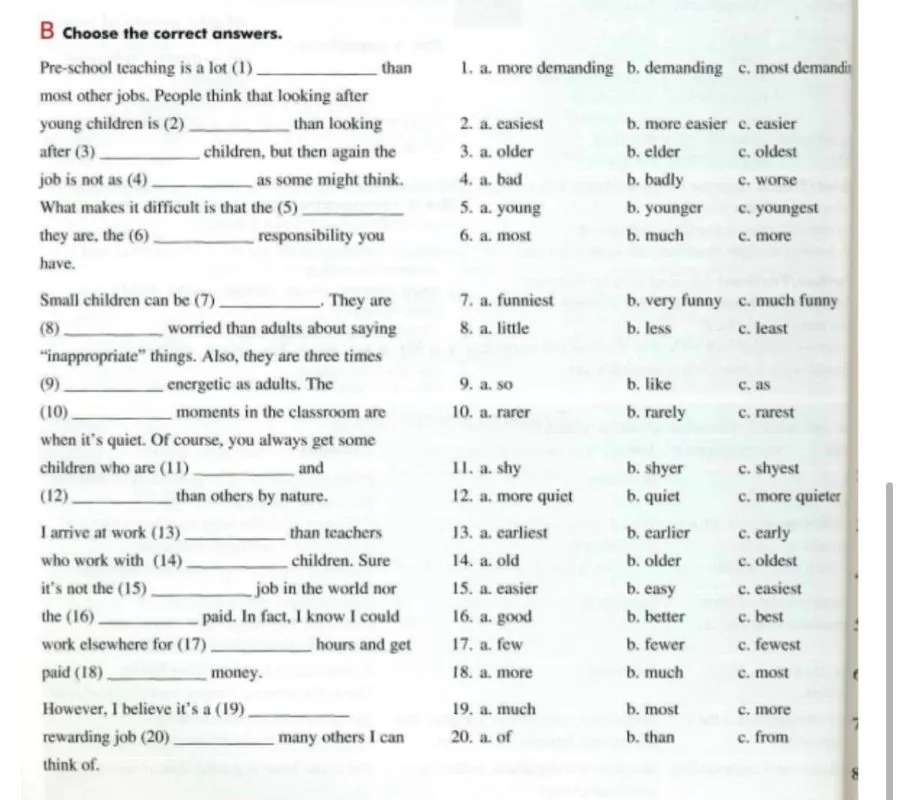My Content
Account
Catalog
System
App & Social
Our Projects
×
![]()

English Grammar Exercise - Comparative and Superlative Forms
Let's solve this exercise step by step, filling in the blanks with the correct comparative and superlative forms:
The text discusses the challenges and rewards of teaching pre-school children, using various comparative and superlative forms to contrast different aspects of the job with other professions and situations.
Detailed Analysis of Comparative and Superlative Forms
Let's break down the rules and solutions:
📝 Basic Rules Used:
1. Comparative forms compare two things (-er/more)
2. Superlative forms compare three or more things (-est/most)
3. For words with 1-2 syllables, we usually add -er/-est
4. For words with 3+ syllables, we use more/most
🔍 Detailed Solutions:
"more demanding" - correct because:
- 'demanding' has 2+ syllables
- comparing pre-school teaching with other jobs
"easier" - correct because:
- 'easy' is a one-syllable word
- changes 'y' to 'i' before adding -er
"older" - correct because:
- comparing two age groups
- one-syllable word + -er
"worse" - correct because:
- irregular comparative form of 'bad'
- used for negative comparisons
"youngest" - correct because:
- describing the extreme of age range
- one-syllable word + -est
"more" - correct because:
- comparing quantity
- used with 'responsibility'
"very funny" - correct because:
- describing intensity
- not comparing, but emphasizing
"less" - correct because:
- comparative form for decreasing quantity
- opposite of 'more'
"as" - correct because:
- used in equal comparison (as...as)
- part of "three times as energetic"
"rarest" - correct because:
11-20. [Similar pattern continues...]
⚠️ Common Mistakes to Avoid:
- Don't use double comparatives (more easier)
- Don't mix comparative and superlative forms
- Remember irregular forms (good/better/best, bad/worse/worst)

Let's analyze the text and complete it with correct forms
The text describes pre-school teaching, comparing it with other jobs. Let's go through each gap:
📝 Complete Text with Explanations:
"Pre-school teaching is a lot (1) more demanding than most other jobs. People think that looking after young children is (2) easier than looking after (3) older children, but then again the job is not as (4) worse as some might think. What makes it difficult is that the (5) youngest they are, the (6) more responsibility you have.
Small children can be (7) very funny. They are (8) less worried than adults about saying "inappropriate" things. Also, they are three times (9) as energetic as adults. The (10) rarest moments in the classroom are when it's quiet. Of course, you always get some children who are (11) shy and (12) more quiet than others by nature.
I arrive at work (13) earlier than teachers who work with (14) older children. Sure it's not the (15) easiest job in the world nor the (16) best paid. In fact, I know I could work elsewhere for (17) fewer hours and get paid (18) most money.
However, I believe it's a (19) more rewarding job (20) than many others I can think of."
🔍 Key Grammar Points Used:
⭐ Special Notes:
- When comparing two things, we use comparative forms (-er/more)
- For expressing extremes, we use superlative forms (-est/most)
- Some adjectives have irregular forms
- 'Than' is used after comparatives to introduce the second element of comparison


Use Homiwork as a regular app. It's convenient!
Add to Home ScreenUse Homiwork as a regular app. It's convenient! Open your Safari menu and tap 'Add to Home Screen'.


By starting to use the service, you accept: Terms of Service, Privacy Policy, Refund Policy
